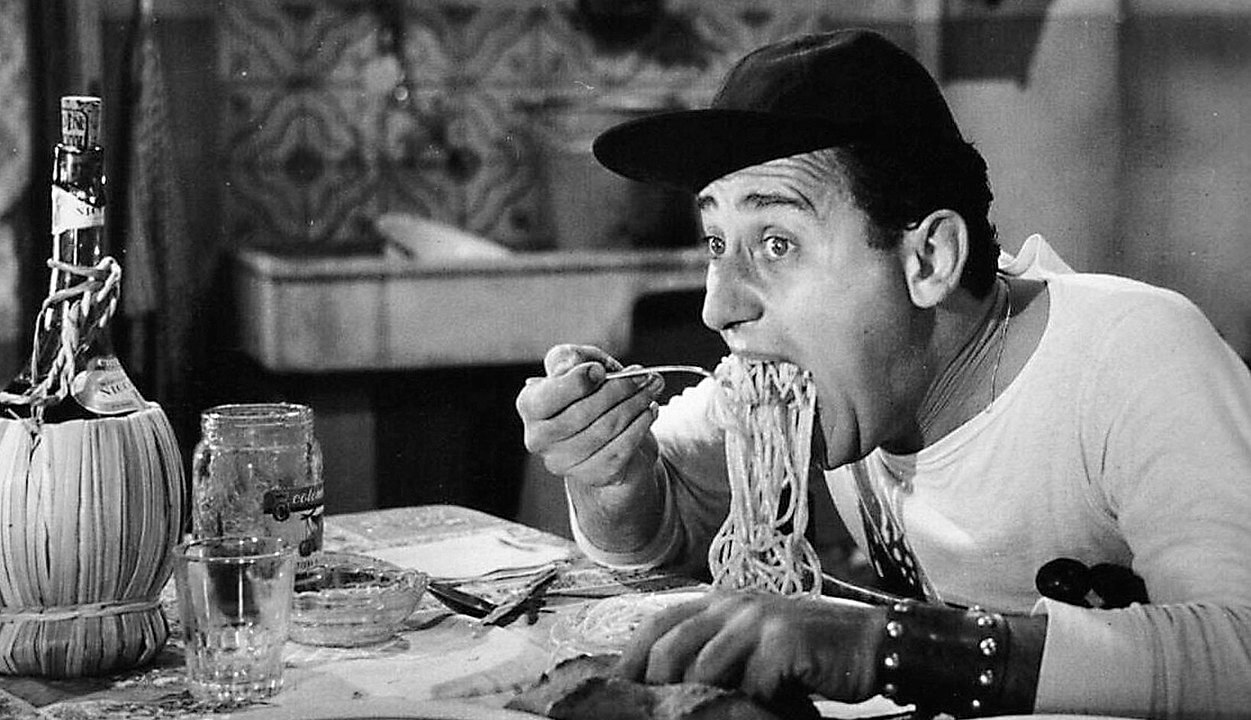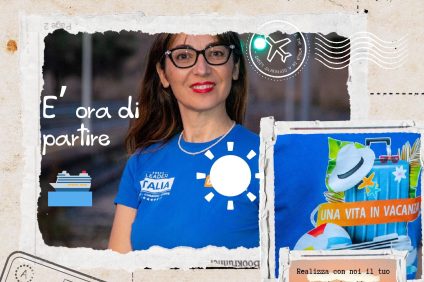“There are days when I get up and think I have the world in my pocket. And that everything is there, at your fingertips - you just need to stretch it. Other days, however, even the closest things get out of my control and become damn distant. I know that sooner or later, it is inevitable, life will present the bill to me. But I also know that, if one day things get worse, there will always be the next and the one after that ". This is the very emotional opening of "Tomorrow comes fast", book of Silvio Governi, Roman director of Alberto Sordi An Italian like us. It is her debut novel, which tells of Giorgia, in an engaging and lively plot. Prominent director of the new generation - Governments - has directed commercials, programs and television docu-films for the Rai and numerous documentaries and shorts.
Silvio Governi: “For example”, fatherhood and his debut novel
Among the works of Silvio Governi there is "For example“, A short film made with the participation of Vinicio Marchioni and Sabrina Impacciatore. The short is about a father who, exasperated by economic problems, opts for an extreme gesture. Rob a bank. Amazing is the fact that his wife and son will be among the bank's customers on the day of the robbery. The work stems from the director's interest in “chance”, “destiny”, and towards the theme of paternity, dear to him. Among his future projects emerges the desire to make a film based on his novel, “Domani Arriva Veloce”.
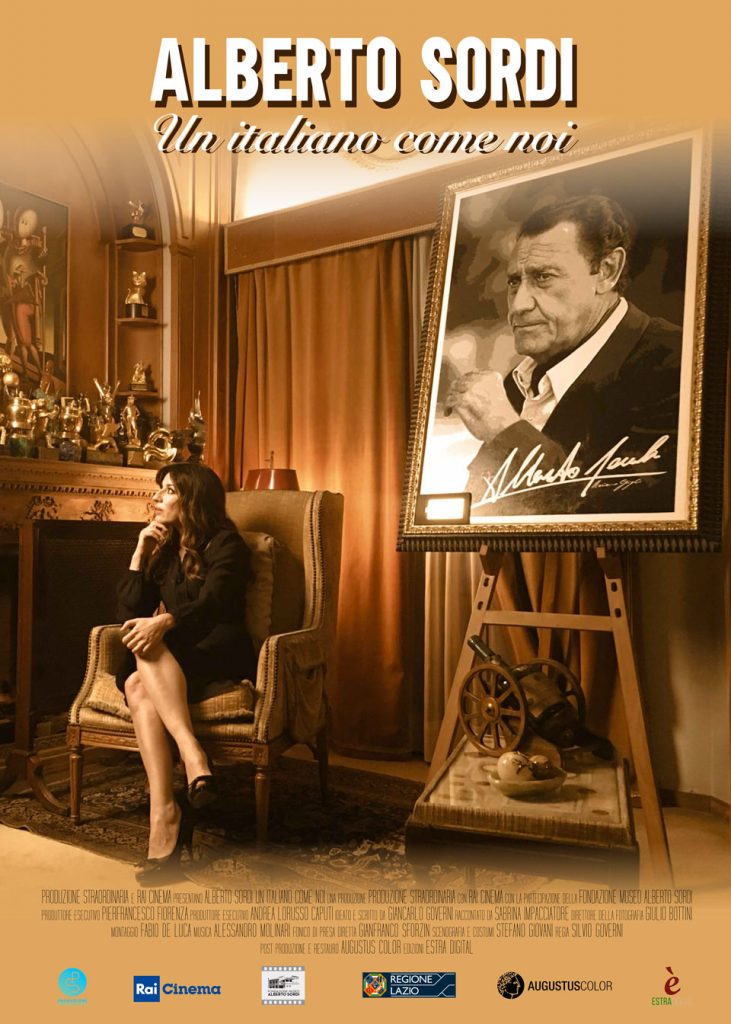
On the occasion of the centenary of the birth of Alberto Sordi, Silvio Governi is the director of "Alberto Sordi, An Italian like us“, Docu-film conceived and written by Giancarlo Governments, told by Sabrina Impacciatore and produced by Extraordinary Production with Rai Cinema in collaboration with the Alberto Sordi Museum Foundation. Previewed at Maxxi di Roma on February 12, it will arrive in cinemas and on Raiuno on the occasion of the celebrations of the centenary of his birth.
We have interviewed him for you, but before we begin we will lull ourselves with another quote from his novel. “The thing that scares me most, at fourteen, is the lack of dreams. I mean daydreams, those that speak of hopes, of ambitions. My dreams last the space of one night ". Tomorrow comes fast, Edizioni Piemme.
Alberto Sordi: an Italian like us
Silvio, how do you see Sordi's comedy in the socio-cultural context in which he was immersed? Sordi was above all a sort of "historian", if we want to define it that way, because it has always told about its time, or rather, the Italian of the twentieth century. From the first world war, to the second conflict, passing through the postwar period, reconstruction, the economic miracle and the crisis. Today, if he were still with us, he would certainly be the witness of the decline of our country. The Great actor highlighted the vices, the virtues, the weaknesses, the pettiness, the fears and even the complexes, the tics and the attitudes of us Italians.
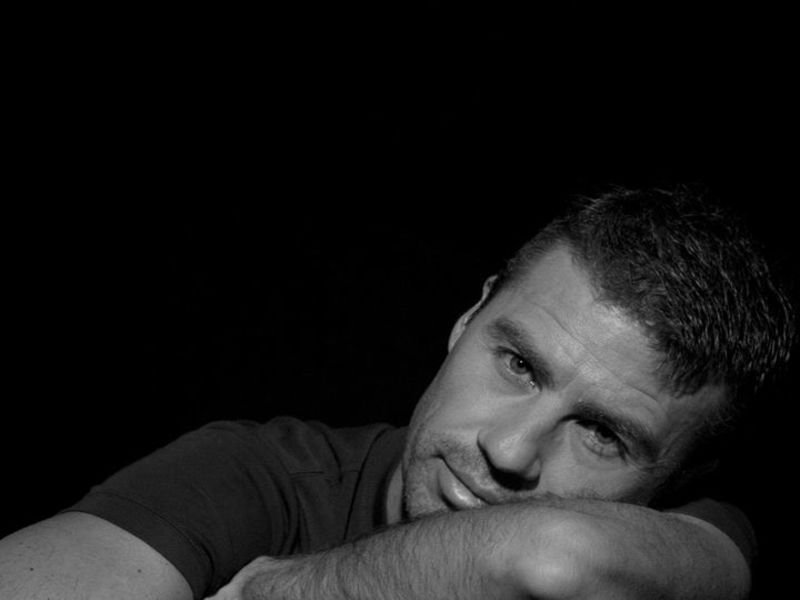
The characters played by Alberto Sordi
"How can we forget the dramatic cowardice of Oreste Jacovacci who, in front of the firing squad,"La Grande Guerra"Of the master Mario Monicelli, he loses his bravado. And like a fearful man, he whimpers in fear because he is forced, in spite of himself, to die as a hero. Or the fortitude, the ransom and, in some ways, theheroism of the character by Lieutenant Alberto Innocenzi in Everybody at home di Luigi Comencini. When, in the end, he begins to shoot, in a gesture of pride, with the machine gun, to defend the homeland against the Nazi occupation after 8 September. And one could go on telling indefinitely every single one facet of us Italians through the multitude of characters played by the great actor Alberto Sordi ”- continues Governi.
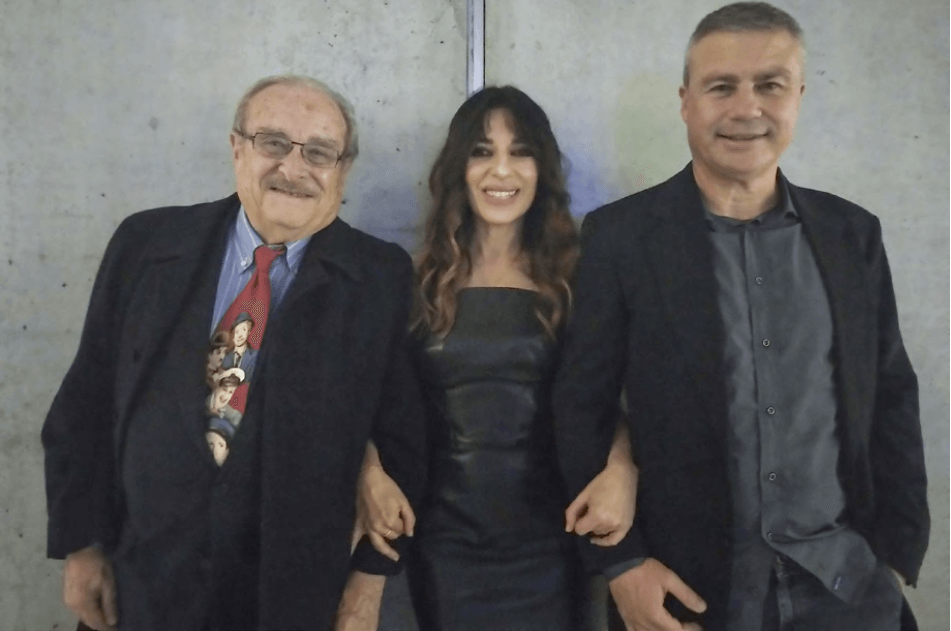
Often they represented a weak and servile Italian who takes pains to obtain favors and privileges how about "The policeman". But also his character perhaps more exquisitely comic like that of Nando Meniconi of "An American in Rome". Here it still has the screw actor ready to give us back one engaging satire di costume of Italy after the war in which the myth for America is told. Much dreamed and desired by us Italians at that time.

And how can we forget "I Vitelloni“, The masterpiece of Federico Fellini with whom he had already worked in "The white sheik". In it, Sordi outlines beautifully the prototype of the young man at the time in the 50s. Restless, contemptuous and indifferent to what surrounds him, never really realized and immature to the point that, only in the end, will he be able to redeem himself, realizing how insignificant and empty his life is. But without having the courage to face it and to change definitively and completely. And how incredibly current it is still Fellini figure by Alberto played by Sordi.
Alberto Sordi: great icon of Italian cinema
What aspect of the comedian, in your opinion, made him rise to one of the greatest icons of Italian cinema?
In the fact that the Italians recognized themselves in him, and if they did not see themselves again they would find their fellow men, relatives, neighbors, their work colleague. Of all these characters Sordi knew how to spot defects and weaknesses by telling them with great effectiveness and, in some cases, even by foretelling and anticipating the times. Because, in the end, who else are the characters in the films played by the actor if not ourselves? Sordi was able, also thanks to brilliant directors such as Fellini, Monicelli, Comencini and Steno, to lay bare an entire population.
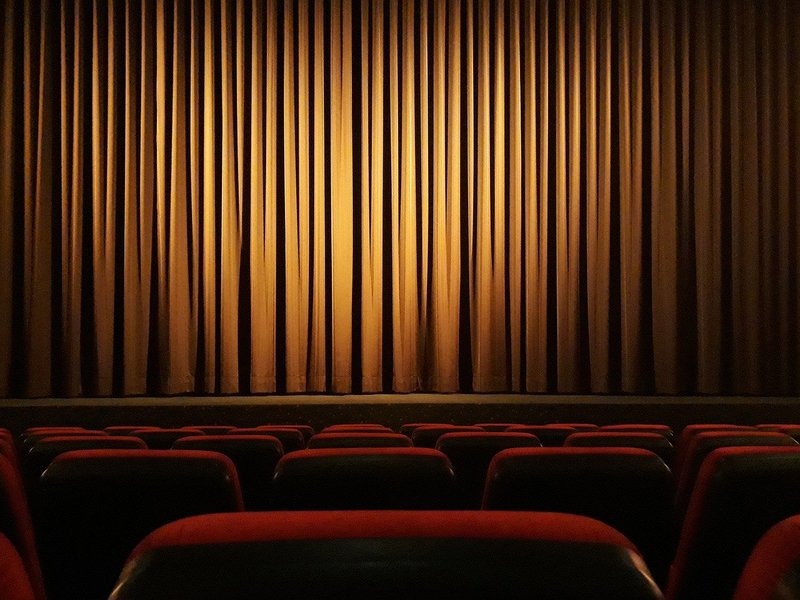
And the Italians represented and described by this multiform and polychromatic gallery of characters which spans decades of Italian history and of which Sordi's complete work is dotted, they recognize themselves in the characteristics and peculiarities of these same characters masterfully interpreted by the actor who give us a fresco of our country so full of contradictions, divisions and, despite this, always full of impetus and a great willpower, inventiveness and redemption. An actor who was the mirror, sometimes faithful and other dissimilar, but always realistic, of an Italy that no longer exists but which represents our deepest roots, around which Italians were formed and grew up.
Who was the national Albertone
“Sordi, or the national Albertone, is the one who, thanks to his immense and extraordinary work, has brought himself closer to the average Italian as an“ Artist ”and as a man. He got close to ordinary people, through an identification process. We have all searched for Italy in Alberto Sordi's films. We Italians have reflected ourselves in those numerous, grotesque and dramatic characters who interpreted. And, in the end, as in the fictional town of Macondo di One hundred years of solitude by Gabriel Garcia Marquez, on those films we ended up finding ourselves. I am sure that, in a hundred years, if there is still someone who wants to know Italy and the Italians of the twentieth century, it will be useful for them to study Alberto Sordi's films. A heritage that belongs to us and that we have a duty to tell, disseminate and pass on to new generations ".
One hundred years since its birth: a legacy to tell
Silvio, what kind of difficulty did you have in making this docu-film so many years after his death? No difficulty because Sordi was the first conservator of its cultural heritage. Throughout his life he continued to erect a monument to himself and his career. Shooting in that house-museum that as a boy I had only seen and imagined from the outside without ever being able to cross the high walls or the gate, waiting for him to come out to take him to my father's house to celebrate their birthday separated by a single day, gave a great emotion to me and the whole crew.
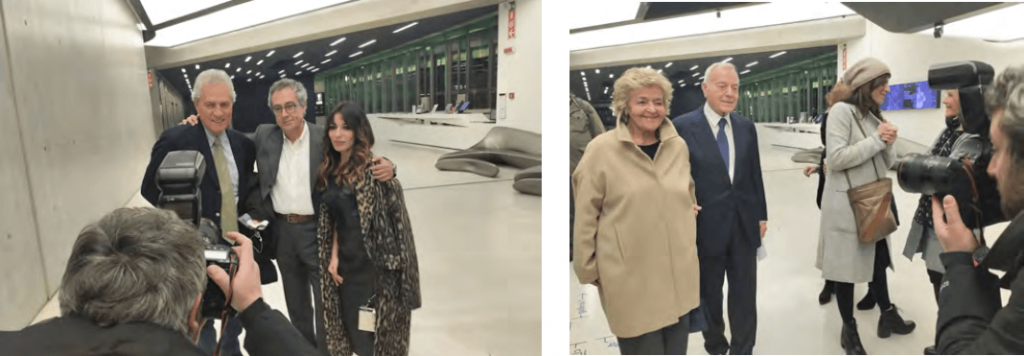
We wandered among those wonderful halls, those rooms and that small theater of a few places, the real treasure of the house, where Alberto entertained friends with his private performances. Here he screened his films, with great respect but above all awe. And in turning in the gallery of that jewel theater where Alberto sat, a little apart, discreetly as if to weigh the emotions of his audience, to spy on their reactions, I felt lucky and I thought I saw him. And almost, for a moment, I felt him once again close to us. Sordi, 17 years after his death, is still today one of the most alive artists in our imagination.
Sordi's legacy today
“A character like Sordi is thought to have no heirs. Does in fact exist the heir of Totò or the heir of Chaplin? Like this it is difficult to find an heir of Alberto Sordi. But there is an actor who can be compared to Sordi, and it is Carlo Verdone, also a Roman, careful to grasp the types emerging from the society of his time. Sordi will want him as a son in the film "Traveling with dad". Then, if we want to think of an heir, an actor who talks about his contemporaneity, I find it difficult to identify him ”- says the director.
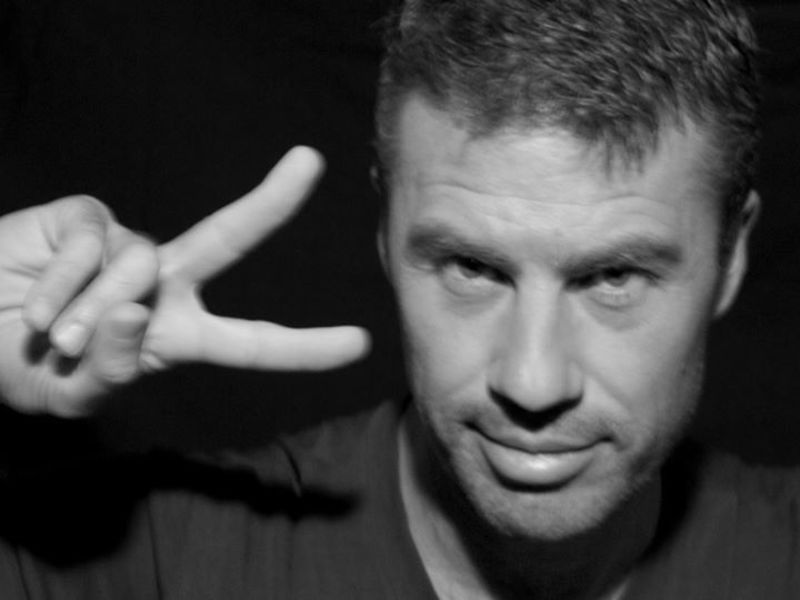
"Also because the Italian Comedy that begins at the end of the 50s, even if Alberto had faced it several years earlier, with ironic and comic tones, serious and even dramatic themes, of social relevance and customs, is a moment unrepeatable culture that gave birth only to only children and without heirs such as Tognazzi, Gassman, Manfredi and Mastroianni, as well as the great Monica Vitti. A period that will have important cinema masters such as Germi, De Sica, Steno, Monicelli, Risi, Scola, Loy, Salce, Comencini, Wertmuller, just to name a few, who are destined to remain unique in the History of Italian Cinema".
The great actor and his private life
In February 2003, while attending Sordi's funeral, Ettore Scola said: “He never allowed us to be sad”. What was Deaf really like in private life?
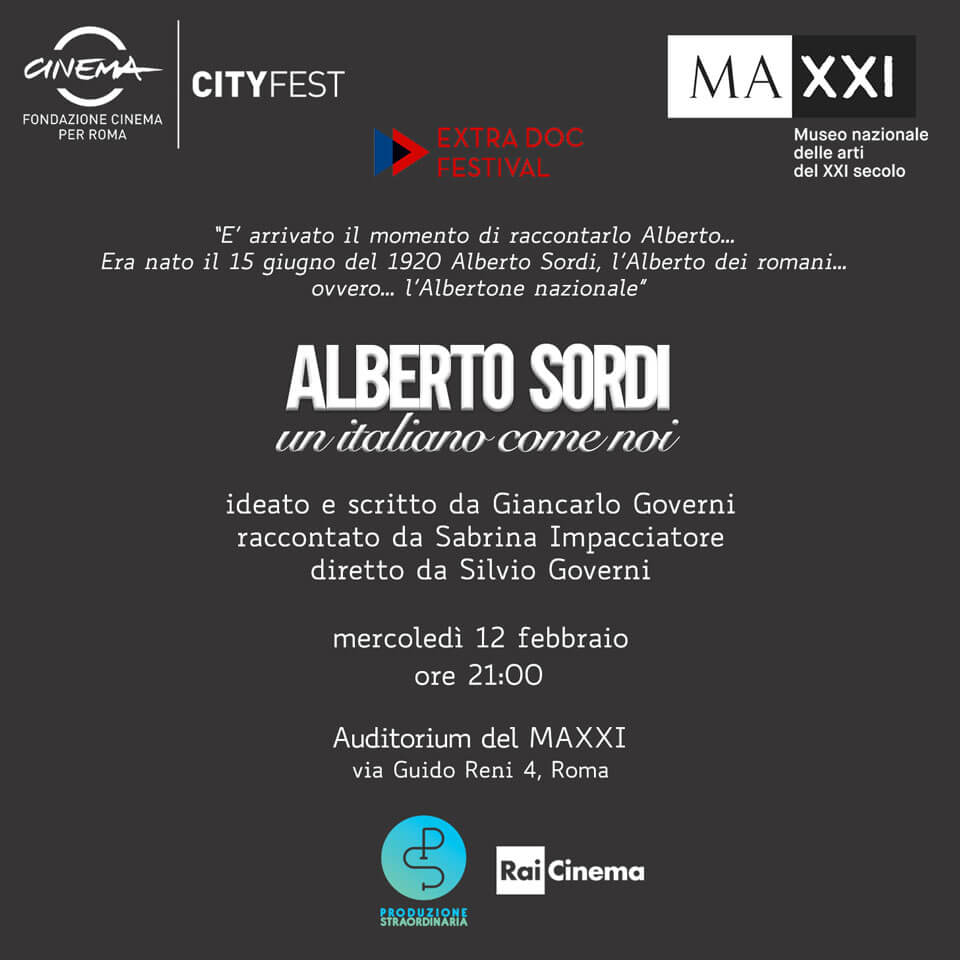
And it is no coincidence that this phrase was uttered by Ettore Scola who directed it, among others, in two episodes of "The new monsters: Like a queen and funeral eulogy". Precisely in the latter reminds us that comic actors, when they die, don't give their audience a chance to to be sad. In the film, the funeral of the actor-comedian cannot be like the real one, of the great participation of the people, but it must be consistent with the character. Like what the showman-Sordi does to his comedian Formichella, winking, building the joke, the mockery, the lash, up to singing together with the theater company as a final tribute. Why then Albertone ours was like that in private life as in the cinema, desecrator and scourger of the defects of us Italians.
Notes: thanks Carlo Carere, Emmanuel Pellegrino e Massimo Montebove for the collaboration.

